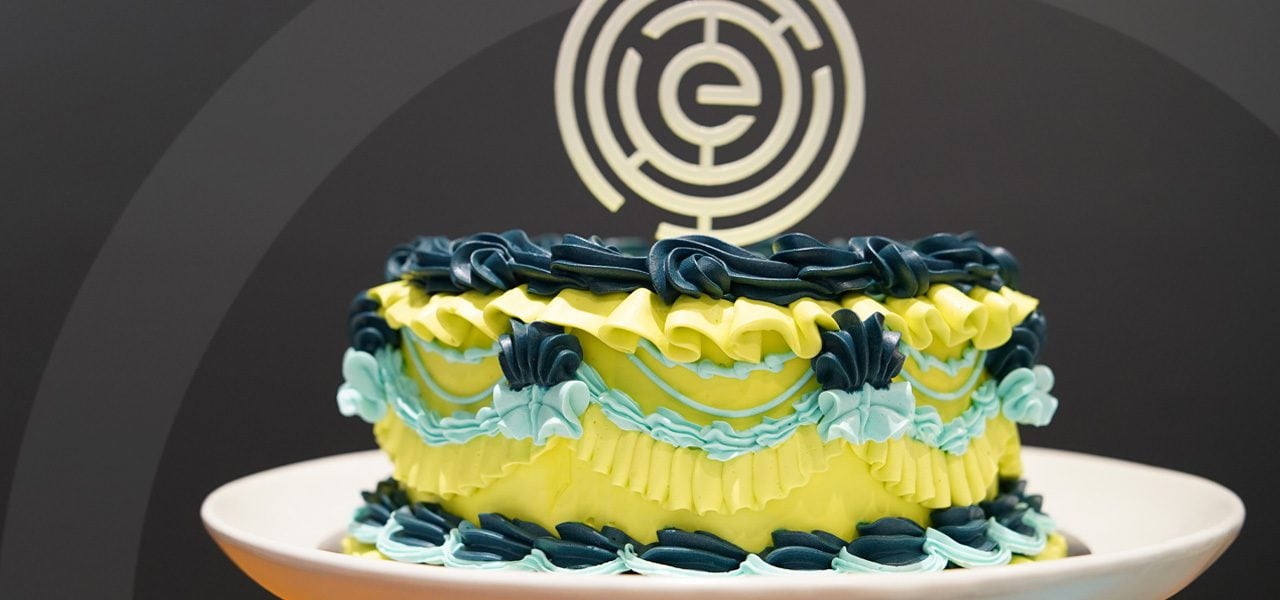The guy with three days in treatment is struggling in his ring of fire.
His part is only three chords, but dang those notes are tough to transition through when you’re fully conscious of all the other 11 folks in the room. Surely his mistakes are messing everyone up, right?
Meanwhile, the guy with 24 days is belting it out, holding the counselor’s eyes with his own as if his very life depended on it. Deep baritone, just like the Man in Black would have liked it, he’s loud and proud and willing to get out of his comfort zone.
The trumpeter has the DaDaDa DaDa DaDaDaaa down pat – though you can tell he is totally distracted by his family conference which took place a couple of hours ago. His self-worth is in the tank, you can see it in the sag of his shoulders and his dismissal of the compliments from his colleagues in the makeshift band, the aptly named Train Wrecks.
While the keyboardist has raised the ire of the other group members trying to hear what the counselor has to say, through it all the 10-day fella is grinning like a white Ray Charles, shaking his maracas in a death grip, but having the time of his life.
It is music therapy day at Edgewood and the men and women who signed up for the session are learning how music unlocks a myriad of feelings, emotions, and addictive behaviours. They have signed up for something that many treatment centres took their time to utilize as therapy, until the scientific evidence proved irrefutable.
Others knew about the power of music to bypass the blockages of our judgemental minds long before modern day scientists could catch up. In fact, the Greek philosopher Pythagoras is credited with saying “music is the language of the heart, the only language that enters the soul without having to pass through the filter of the brain first.”
The Language of the Heart. Interesting. The same title of the book written by one of the founders of the 12 Step recovery movement.
In the summer of 2010, when Teresa Lesiuk PhD, MT-BC, published the results of an experiment that saw two dozen tech company employees participate in a three-week study on how music can affect their positive, negative, and cognitive performances. The study showed “statistically significant improvement in both state-mood and cognitive performance scores.” Her findings, published in the Oxford Academic Journal of Music Therapy article titled “The Effect of Preferred Music on Mood and Performance in a High Cognitive-Demand Occupation” was just one such article of proof. There are plenty others showing how music therapy works. Scientifically.
It is hardly a theory, at least not according to the Cleveland Clinic, which writes: “Music Therapy is an evidence-based treatment that helps with a variety of disorders including cardiac conditions, depression, autism, substance abuse and Alzheimer’s disease. It can help with memory, lower blood pressure, improve coping, reduce stress, improve self-esteem and more. You don’t need a background in music to participate.”
If you consider the Cleveland Clinic’s 65,000 care givers at 200 locations, six million annual visitors and 102-year history of multi-specialty group practice enough evidence, then their statement should be a bit of a mic drop on the therapeutic value of the practice.
Of course, you won’t have to tell that to Timothy Von Boetticher, the counselor who delivers the Music Therapy sessions at Edgewood. He’s totally familiar with the power of music. And the power of treatment. He’s got many years’ experience with both.
Von Boetticher is 61, with a family lineage traceable back to the 1300s. He was born in Saskatchewan, raised near Cobourg, Ontario. He had the power of a higher source in his life from the get-go – his father a United Church minister, his mother a teacher, and the daughter of a Baptist minister.
He wasn’t big on the celestial spirits but became lit up by the power of alcohol early.
“Would you believe me if I told you, it goes back to childhood? I was a colicky kid. I am pretty sure they gave me gripe water, which had booze in it. Then I can remember my Oma, my German grandmother, making us rum toddies on winter days, when I was maybe 8.”
By high school he was hanging with the tough crowd, just trying to fit in.
“My high school graduating yearbook, I am there with a drink in one hand and a cigarette in the other. I had no clue.”
He also was unsure about what to do for a career. First it was four years at Queens University for an unsuccessful but fully inebriated attempt at a psychology degree. But when supporting a girlfriend while she auditioned for a part in a play with the theatre crowd at the University of Toronto, he was asked to try out for a small role, too.
“It was a collective piece called Banner – an Exploration of the American Dream. The role they gave me was John Wayne. So, it was “America – why I love ‘er!” he says with the Duke’s trademark drawl.
He got the part, she didn’t. He found himself enrolled at U of T and into the world of drama he went, surfacing with a bachelor’s degree in it.
Von Boetticher found the U of T scene intense and exciting. He became involved in the theatre and folk music crowd, and even started his own stage show, the Back Woods Open Stage on Thursday nights, and eventually, the Back Woods Folk Festival.
“It was pretty wild. Everything. It was very counterculture. You couldn’t get away with it now. Not even close.”
“My sound system was my stereo with a mic plugged into it. The people that were really pro they were like, ‘could we uh, I can’t really hear myself.’ But I’m like that’s it man! I kind of saw it as the great equalizer because people that came out of the closet to play, who were like ‘Oh, I don’t really want to play,’ and I’d say go! Give it a shot! And they ended up being wonderful. It kind of balanced things out. So, it was nice.”
Almost 40 years later, as he explains to the Edgewood Music Therapy students about the gift of live music, of comradery, of discipline, of getting out of your comfort zone and combining with others on a project of sound and creativity, you can see where von Boetticher’s roots in the music scene come in with his psychology and counseling chops.
To say nothing of his lived experience.
Armed with a Certificate in Fine Arts from Toronto’s famous Central Tech School (est. 1915), he headed west, to Banff and Calgary before moving to Vancouver Island to enroll in the VIU (Malaspina College) Jazz program in 2004. His drinking, which he had understated in his own definition to “weekend warrior” status, actually turned out to be almost daily drinking. A friend of his invited him to a meeting of Alcoholics Anonymous on campus. It shook him to his core.
“I get in there, hear a few people share and I started crying. Right away. I think it is because I knew, and it is making me tear up even now, I knew I belonged there. It was huge,” says von Boetticher. “I remember they had an intermission, and I went out to take a leak, and this guy stands beside me in the stall and says, ‘You are going to run out of here aren’t you?’ I said yep. He said ‘Don’t, stay.’ I figure he saved my life.”
Married to his wife Elle, who he met in 1992 (together they own an Elvis Presley costume company, funded in part by a successful pitch on the Canadian television show Dragon’s Den), he knew from the AA meeting his drinking was unmanageable. One day while talking to an addictions counselor he agreed he may need treatment.
“He wanted me to go to Edgewood and I said no, I’m not going, I’m not going, I’m not going. Then finally one day I came in and said okay, I’ll go. He got on what was kind of like a Bat phone. He just got on and wham. I’m at Edgewood.”
It is January 2023. He has been an addictions counselor at his alma Mata for almost four years. It is almost a year to the day since he got the green light from Edgewood’s management team to start the Music Therapy program.
With over 17 years of abstinence under his belt, experienced as a counselor, with a caseload of patients, the artist Tim von Boetticher is leading his Trainwreck band of patients who have gathered for their first and only time through the intricacies of Ring of Fire. Originally the song done by Anita Carter, the sister of June Carter, Johnny Cash’s wife, It is a song filled with the passion of broken hearts, wild desires, and the transformative power of love. Anita didn’t make it fly, but Johnny sure did.
Von Boetticher explains to his patients how music can soften the heart, can inspire, can lead you into a place beyond logic. The soul. Words and concepts that resonate with people trying to get in touch with their inner child, their soul sisters and brothers, their true selves.
“Music is life itself,” said the great jazz trumpeter Louis Armstrong.
Five of the 11 people in the room have instrumental experience. Three guitars. A keyboard. A trumpeter. They listen to Anita Cash’s version, feel the energy, listen to Johnny Cash’s version, and von Boetticher hits the record button on his phone. Take one.
With Edgewood’s blessing, and on their dime, von Boetticher studied for a year to get his certificate in Music Therapy. He sold the idea to the team to bring it in as an option to patients and judging by the remarks on the patients’ daily Significant Event Sheets, by the smiles on the faces, and by the request to attend the sessions, Edgewood has a hit with its latest offering to help a challenged population find peace.
“Music should be an essential part of every analysis,” Swiss psychiatrist Carl Jung is quoted as saying. He also said, “Music certainly has to do with the collective unconsciousness.”
Von Boetticher chats with the patients after each recording (he does four in this session), and each recording sounds more united, more rhythmic, more confident. In the end, strangers who seldom play without being under the influence, if they ever play at all, have spent 90 minutes learning what happens when people let go of their inhibitions, trust their senses, and let music open their minds and souls.
Von Boetticher debriefs with them. They talk about what they liked and did not like so much about their individual performances. The experienced musicians mention chording or strumming, or pitch. The newcomers to instruments talk about how good it sounded, how much fun they had, how shy they were in the first versions, how comfortable with their process by the latter ones. There are many compliments dished out to one another, many grins, shaking of heads in amazement.
As he winds the session up, Von Boetticher smiles and tells them this was one of the best sessions yet. He means it. The language of the heart is clear and strong when a fellow passenger in recovery shares his truth.
Von Boetticher has written over 200 songs. He has seen everyone from Rush, to Aerosmith, to Queen and all bands in between. He has written seven plays and a Broadway length musical; he is the go-to guy for singing the national anthem at the City of Nanaimo swearing in ceremonies. He has met many of his heroes in the arts, from Pete Seger to Blue Rodeo, the Leslie Spit Treeo, to Ken Keesey of One Flew Over the Cuckoos Nest fame. He even has a guitar given to him by the man who made Ring of Fire a smash hit. Yes, that Johnny Cash.
And there is nowhere he would rather be than helping the patients of Edgewood find their way home.
“It is amazing. The opportunity to help people, is just unparalleled. I can’t even imagine … I don’t even want to do anything else. “
This is one Train Wreck that causes no casualties. Everyone makes it home in one piece.
“I have developed a theory,” says von Boetticher. “We are like X Men. We have superpowers of sensitivity and other kind of things, but we don’t know what to do with our powers. So, we come here. Edgewood. Xavier’s School, this place, which teaches you to round out your powers. I think all those guys are really sensitive and they don’t know what to do with what they see. They don’t know what to do with what they feel. Music gives them some focus, and when it is focused and when they do take that sensitivity and they apply it to something, look what happens!”



